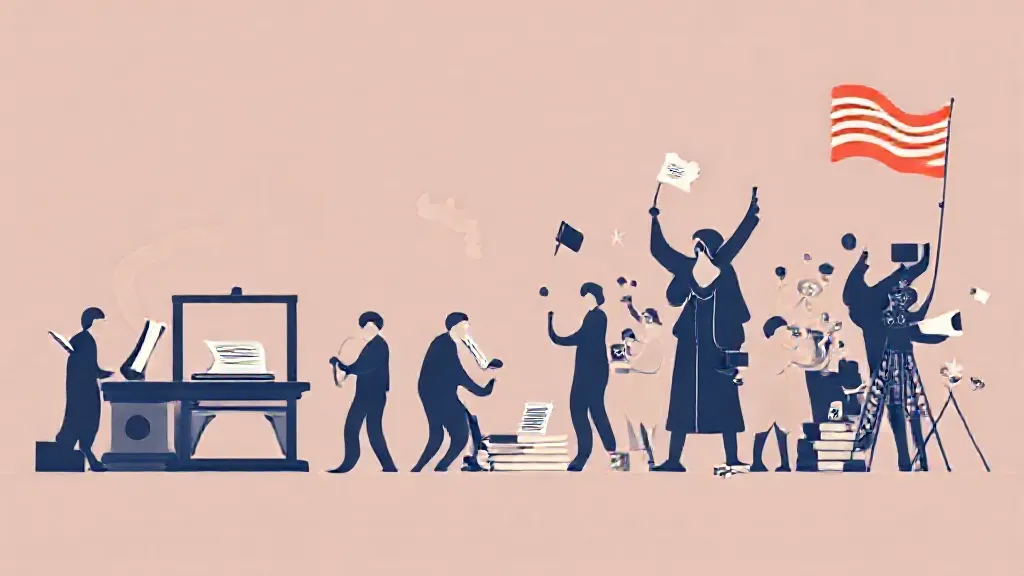The establishment of freedom of the press is a cornerstone of democratic societies, rooted in the belief that a free and independent media is essential for the functioning of a healthy democracy. This principle emerged from a complex interplay of historical, social, and political factors, particularly during the Enlightenment and the American and French Revolutions. Understanding why this freedom was established requires a look back at the various influences that shaped the concept of press freedom.
Historical Roots of Press Freedom
The origins of press freedom can be traced back to the early days of printing in the 15th century. The invention of the printing press by Johannes Gutenberg revolutionized the dissemination of information, allowing for the rapid spread of ideas and knowledge. However, this also posed a threat to established authorities, leading to censorship and control over what could be published.
The struggle against this censorship laid the groundwork for the eventual recognition of press freedom as a fundamental right.
The Enlightenment and the Birth of Modern Democracy
During the Enlightenment, thinkers such as John Locke, Voltaire, and Thomas Paine championed the idea that individuals should have the right to express their thoughts and opinions freely. They argued that knowledge and reason should guide society, rather than the arbitrary dictates of monarchs or religious authorities.
This philosophical movement significantly influenced the founding documents of modern democracies, including the United States Constitution and the French Declaration of the Rights of Man and of the Citizen, both of which enshrined the freedom of the press as a vital component of liberty.
Press Freedom in the American Revolution
In the context of the American Revolution, the freedom of the press became a rallying cry against British tyranny. Colonial newspapers played a crucial role in disseminating revolutionary ideas and mobilizing public opinion against British rule.
The First Amendment to the United States Constitution, ratified in 1791, explicitly prohibits Congress from making laws that abridge the freedom of speech or of the press. This legal protection was a direct response to the oppressive censorship experienced under British governance.
The French Revolution and the Quest for Equality
Similarly, the French Revolution underscored the importance of press freedom in the pursuit of equality and justice.
Revolutionary leaders recognized that an informed citizenry was essential for the success of their movement. The Declaration of the Rights of Man and of the Citizen, adopted in 1789, asserted that "the free communication of ideas and opinions is one of the most precious of the rights of man." This acknowledgment solidified the press's role as a watchdog against tyranny and a vehicle for public discourse.
Challenges to Press Freedom Throughout History
Despite its establishment, press freedom has faced numerous challenges throughout history. Authoritarian regimes have often sought to suppress dissenting voices and control the narrative through censorship and propaganda. The 20th century witnessed significant struggles for press freedom, particularly during periods of totalitarian rule in countries like Nazi Germany and Stalinist Russia.
Journalists and publishers risked their lives to expose the truth, demonstrating the critical role of press freedom in holding power accountable.
The Role of Technology in Press Freedom
Advancements in technology have continually reshaped the landscape of press freedom. The rise of the internet and social media has democratized information dissemination, allowing for a greater diversity of voices.
However, this has also led to new challenges, such as misinformation and the regulation of online content. Understanding the implications of these technological changes is vital for preserving the principles of press freedom in the modern era.
The Contemporary Importance of Press Freedom
Today, press freedom remains a fundamental pillar of democracy worldwide.
It empowers citizens to engage in informed debate, hold governments accountable, and advocate for social justice. Organizations such as Reporters Without Borders and the Committee to Protect Journalists work tirelessly to defend press freedom and support journalists facing persecution. The ongoing struggle for press freedom highlights its essential role in fostering transparency and accountability in governance.
Conclusion: The Enduring Legacy of Press Freedom
In conclusion, the establishment of freedom of the press was a significant milestone in the evolution of democratic societies. It emerged from a historical context marked by the struggle against censorship and the desire for individual liberties. As we navigate the complexities of the modern information age, it is crucial to recognize the enduring importance of press freedom and to remain vigilant in its defense, ensuring that it continues to serve as a guardian of democracy and a champion of truth.
